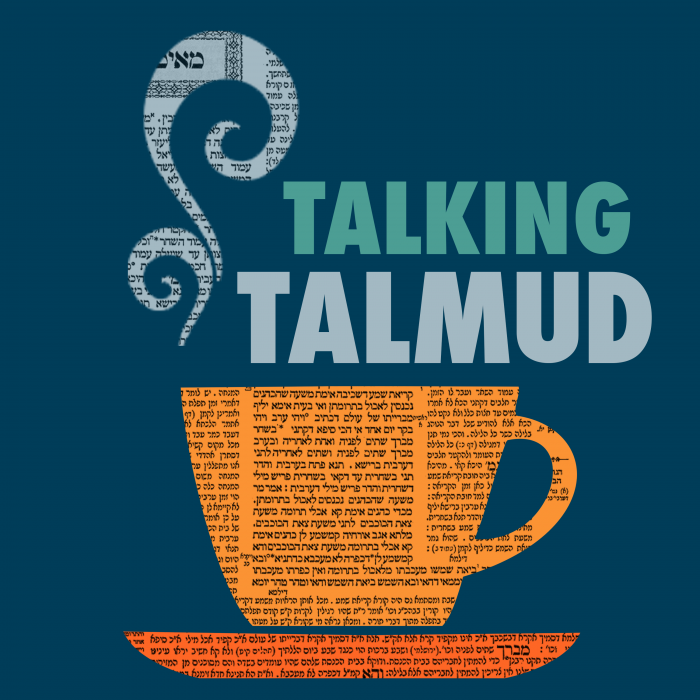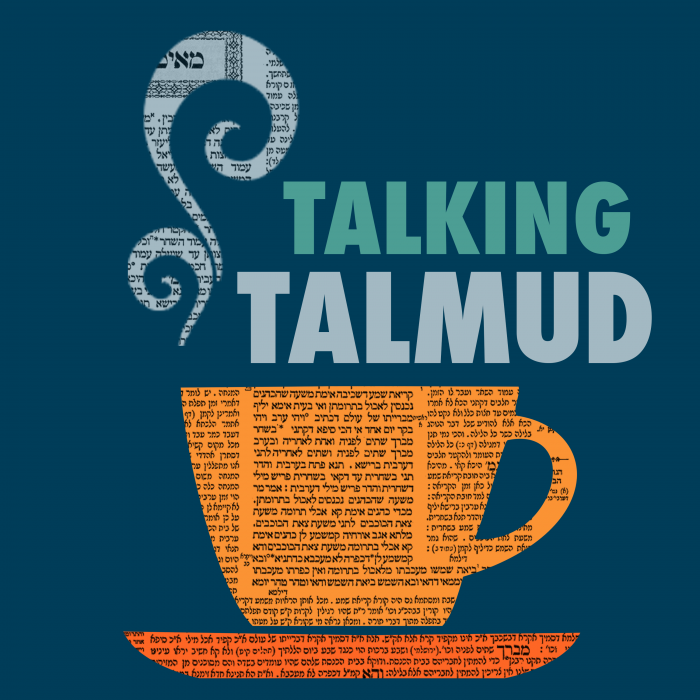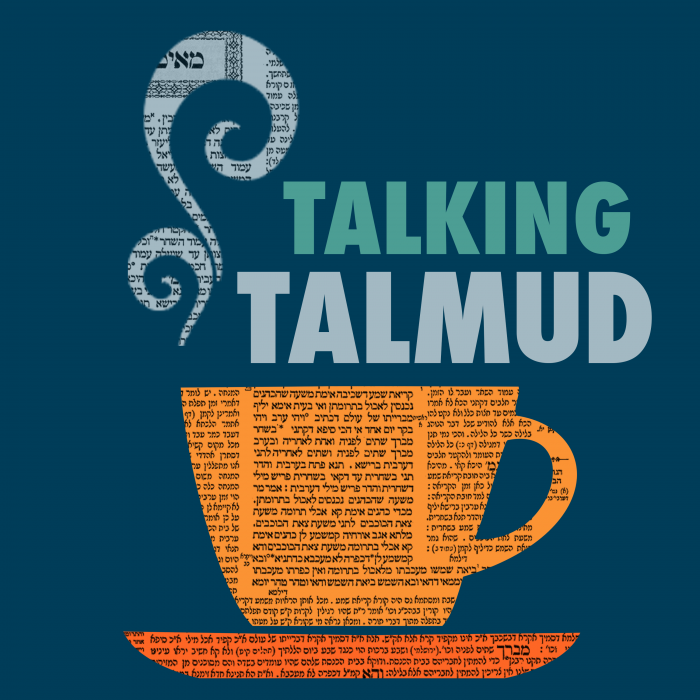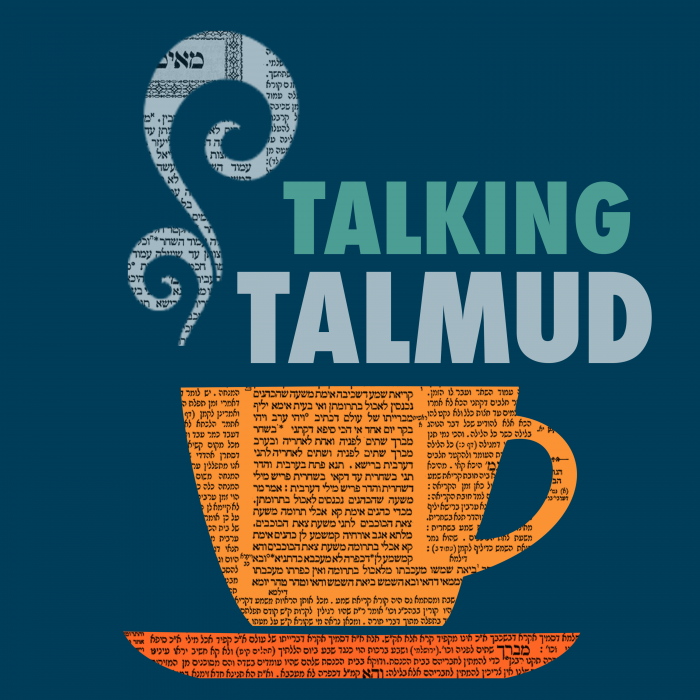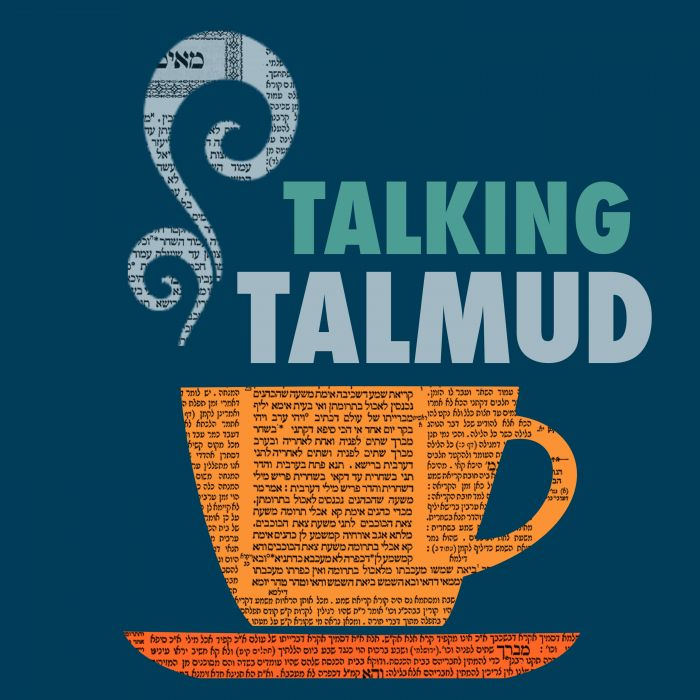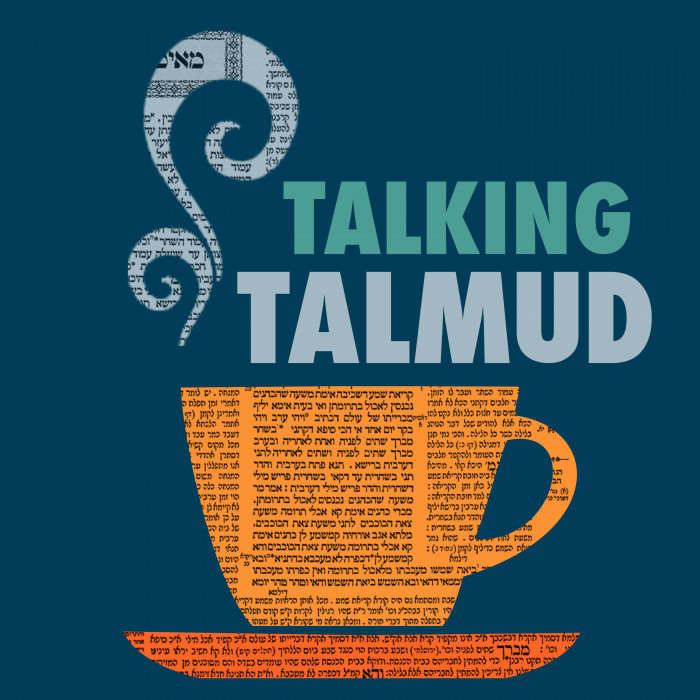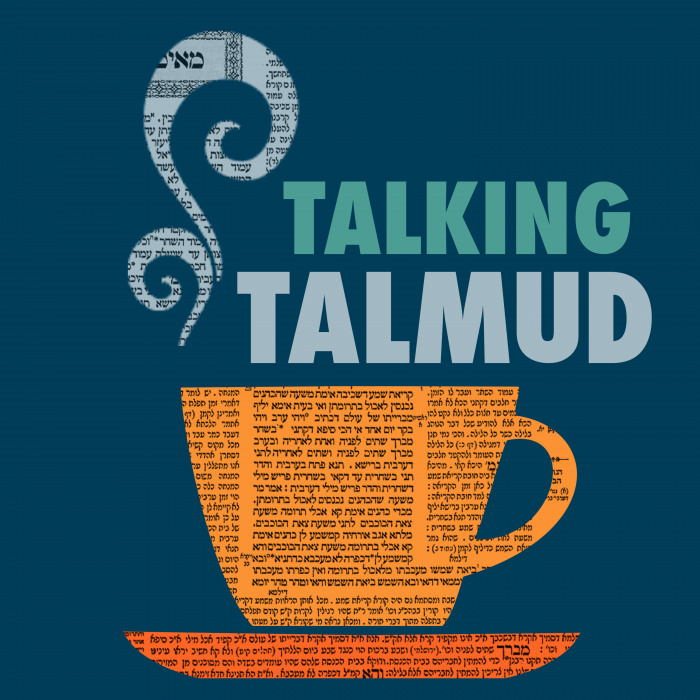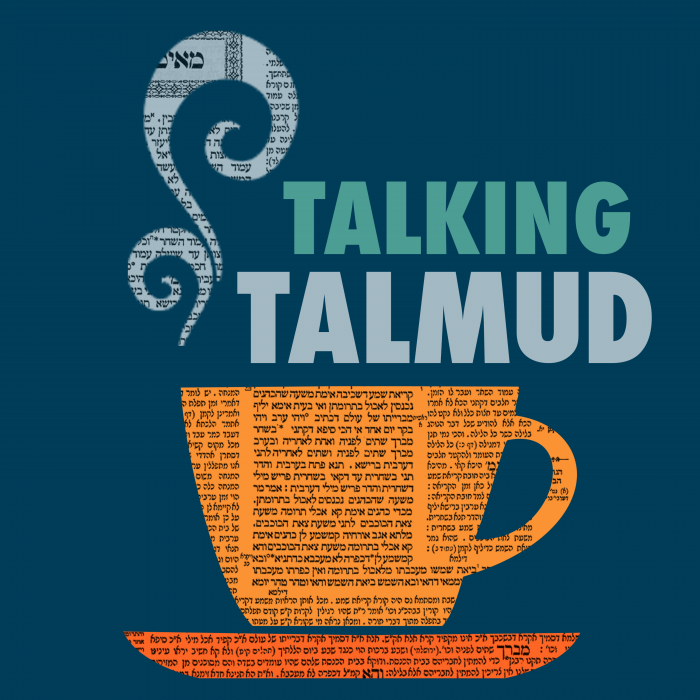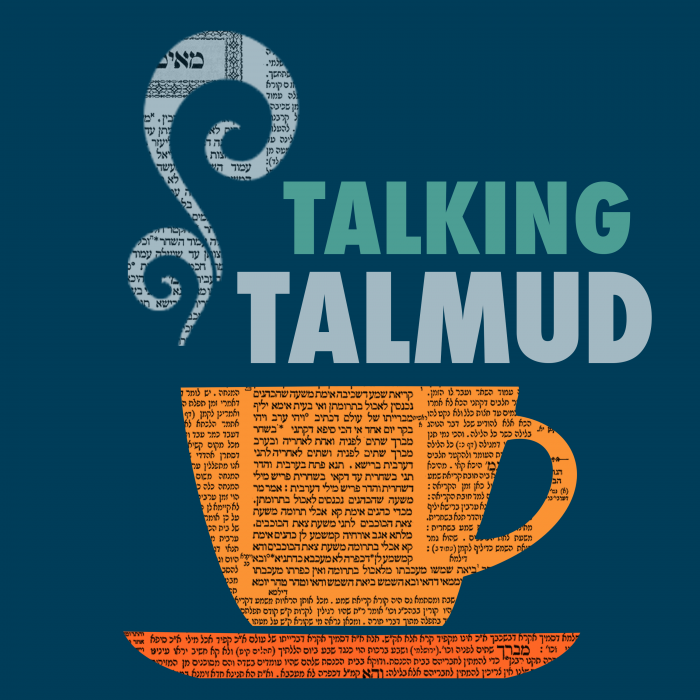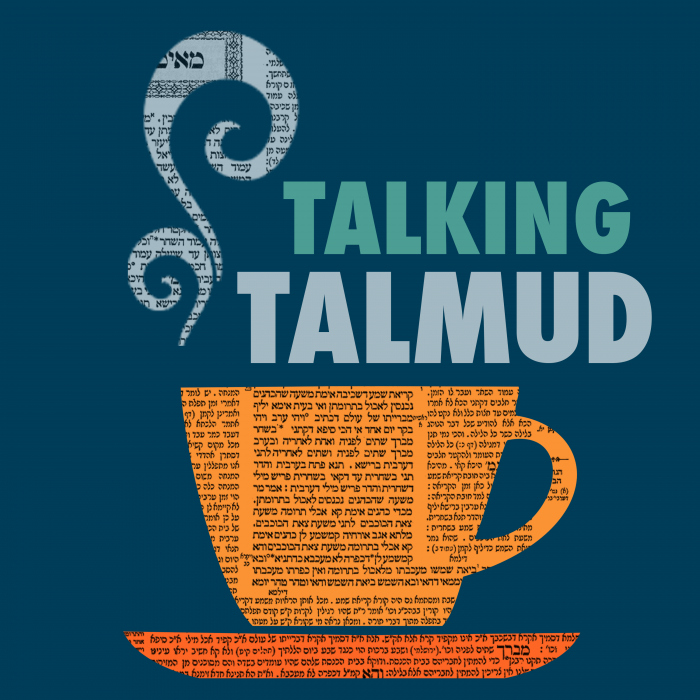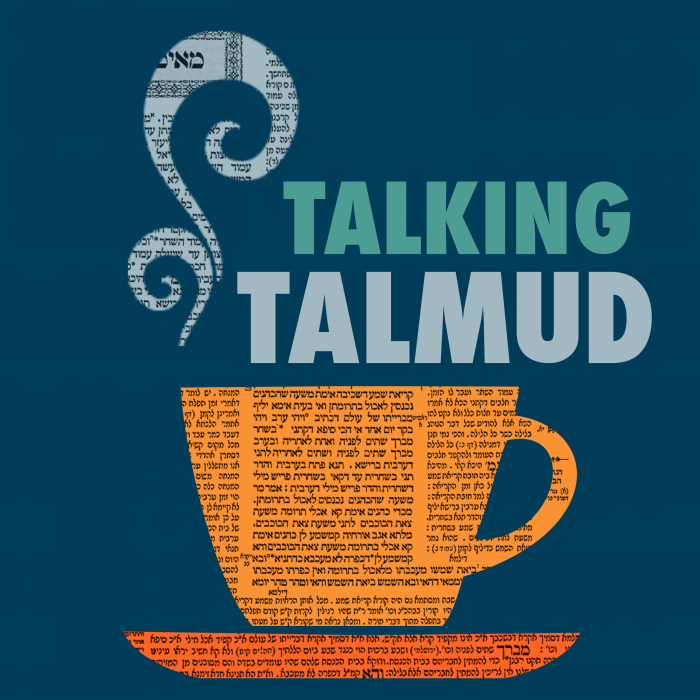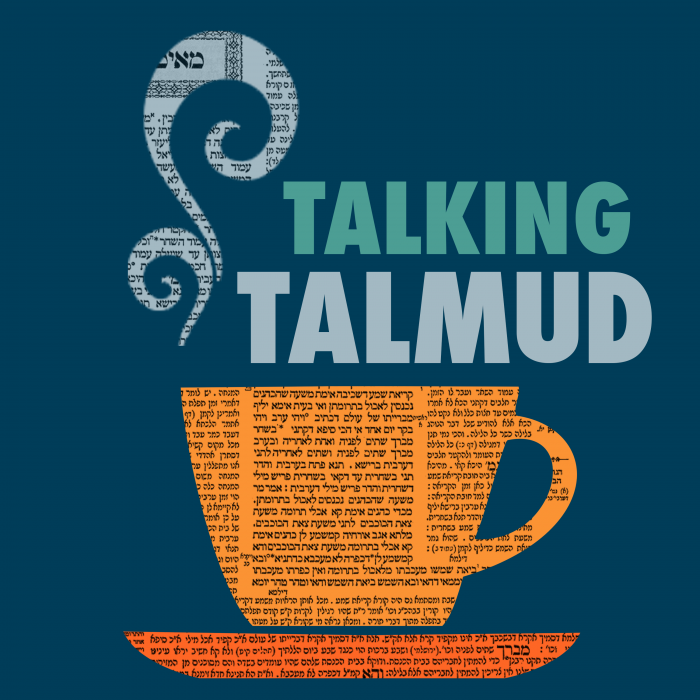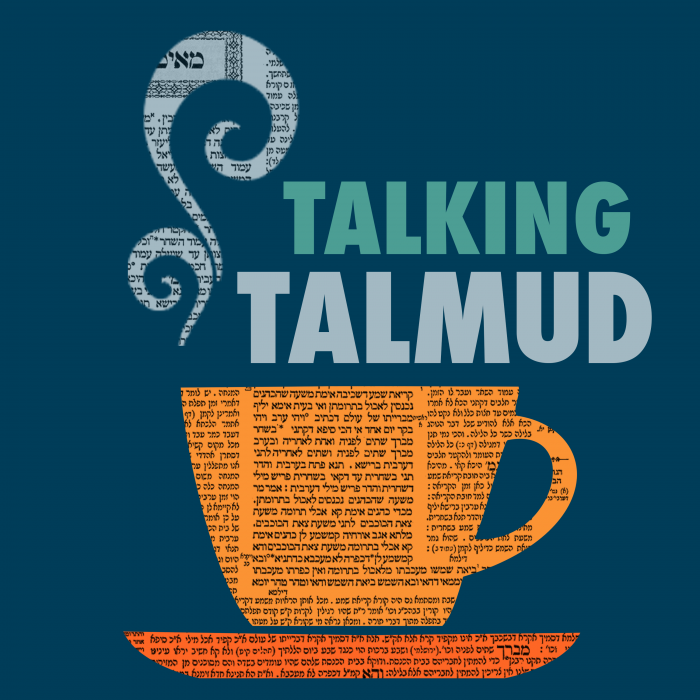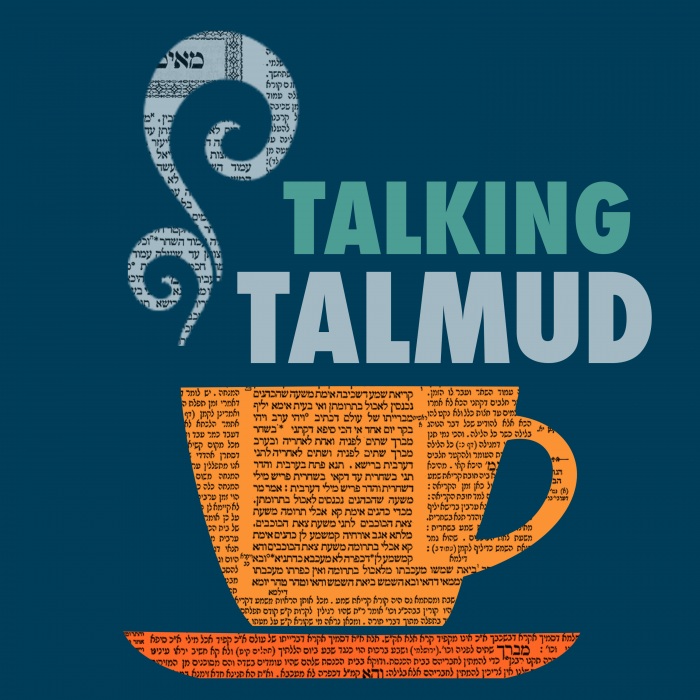Berakhot 21
וַהֲרֵי תְּפִלָּה, דְּדָבָר שֶׁהַצִּבּוּר עֲסוּקִין בּוֹ, וּתְנַן: הָיָה עוֹמֵד בִּתְפִלָּה וְנִזְכַּר שֶׁהוּא בַּעַל קֶרִי — לֹא יַפְסִיק, אֶלָּא יְקַצֵּר. טַעְמָא דְּאַתְחֵיל, הָא לָא אַתְחֵיל — לֹא יַתְחִיל!
The Gemara challenges: And prayer, which is also a matter in which the community is engaged, and we learned in the mishna: One who was standing in prayer and remembered that he is one who experienced a seminal emission and did not yet immerse himself should not interrupt his prayer, rather he should abridge it. The Gemara infers: The reason is because he already began to pray; however, if he did not yet begin, then he should not begin, even by means of contemplation.
שָׁאנֵי תְּפִלָּה דְּלֵית בַּהּ מַלְכוּת שָׁמַיִם. וַהֲרֵי בִּרְכַּת הַמָּזוֹן לְאַחֲרָיו דְּלֵית בַּהּ מַלְכוּת שָׁמַיִם, וּתְנַן עַל הַמָּזוֹן מְבָרֵךְ לְאַחֲרָיו וְאֵינוֹ מְבָרֵךְ לְפָנָיו! אֶלָּא: קְרִיאַת שְׁמַע וּבִרְכַּת הַמָּזוֹן דְּאוֹרָיְיתָא, וּתְפִלָּה דְּרַבָּנַן.
The Gemara responds: Prayer is different in that it does not contain the acceptance of the yoke of the kingdom of Heaven. The Gemara rejects this: And Grace after Meals does not contain the acceptance of the yoke of the kingdom of Heaven, and yet we learned in the mishna: Over food, one recites a blessing afterward, but does not recite a blessing beforehand. Rather, the differences must be explained otherwise: The recitation of Shema and Grace after Meals are both mitzvot by Torah law, while prayer is only by rabbinic law. Therefore, one who is impure need not pray.
אָמַר רַב יְהוּדָה: מִנַּיִן לְבִרְכַּת הַמָּזוֹן לְאַחֲרֶיהָ מִן הַתּוֹרָה — שֶׁנֶּאֱמַר: ״וְאָכַלְתָּ וְשָׂבָעְתָּ וּבֵרַכְתָּ״.
Rav Yehuda said: From where is the mitzva by Torah law to recite Grace after Meals, derived? As it is stated: “And you shall eat and be satisfied and bless the Lord your God” (Deuteronomy 8:10).
מִנַּיִן לְבִרְכַּת הַתּוֹרָה לְפָנֶיהָ מִן הַתּוֹרָה — שֶׁנֶּאֱמַר: ״כִּי שֵׁם ה׳ אֶקְרָא הָבוּ גֹדֶל לֵאלֹהֵינוּ״.
And from where is the mitzva by Torah law to recite the blessing over the Torah before it is read, derived? As it is stated: “When I proclaim the Lord’s name, give glory to our God” (Deuteronomy 32:3), meaning that before one proclaims the Lord’s name by reading the Torah, he must give glory to God.
אָמַר רַבִּי יוֹחָנָן: לָמַדְנוּ בִּרְכַּת הַתּוֹרָה לְאַחֲרֶיהָ מִן בִּרְכַּת הַמָּזוֹן מִקַּל וָחוֹמֶר, וּבִרְכַּת הַמָּזוֹן לְפָנֶיהָ מִן בִּרְכַּת הַתּוֹרָה מִקַּל וָחוֹמֶר. בִּרְכַּת הַתּוֹרָה לְאַחֲרֶיהָ מִן בִּרְכַּת הַמָּזוֹן מִקַּל וָחוֹמֶר: וּמָה מָזוֹן שֶׁאֵין טָעוּן לְפָנָיו, טָעוּן לְאַחֲרָיו, תּוֹרָה שֶׁטְּעוּנָה לְפָנֶיהָ, אֵינוֹ דִּין שֶׁטְּעוּנָה לְאַחֲרֶיהָ. וּבִרְכַּת הַמָּזוֹן לְפָנֶיהָ מִן בִּרְכַּת הַתּוֹרָה מִקַּל וָחוֹמֶר: וּמָה תּוֹרָה שֶׁאֵין טְעוּנָה לְאַחֲרֶיהָ, טְעוּנָה לְפָנֶיהָ, מָזוֹן שֶׁהוּא טָעוּן לְאַחֲרָיו, אֵינוֹ דִּין שֶׁיְּהֵא טָעוּן לְפָנָיו.
Rabbi Yoḥanan said: We derived that one must recite the blessing over the Torah after it is read from Grace after Meals by means of an a fortiori inference. And we derive the obligation to recite a blessing before partaking of food from the blessing over the Torah by means of an a fortiori inference. The blessing over the Torah after it is read from Grace after Meals by means of an a fortiori inference: Food, which does not require a blessing beforehand by Torah law, requires a blessing afterward; Torah, which requires a blessing beforehand, is it not right that it requires a blessing afterward? And similarly: The blessing before partaking of food from the blessing over the Torah by means of an a fortiori inference: Torah, which requires no blessing afterward by Torah law, requires a blessing beforehand; food, which requires a blessing afterward, is it not right that it requires a blessing beforehand?
אִיכָּא לְמִפְרַךְ: מָה לְמָזוֹן שֶׁכֵּן נֶהֱנֶה. וּמָה לְתוֹרָה שֶׁכֵּן חַיֵּי עוֹלָם. וְעוֹד, תְּנַן עַל הַמָּזוֹן מְבָרֵךְ לְאַחֲרָיו וְאֵינוֹ מְבָרֵךְ לְפָנָיו. תְּיוּבְתָּא.
The Gemara notes: The logic of this a fortiori inference can be refuted: What is true with regard to food, where one derives pleasure from eating, is not true with regard to matters which offer no bodily pleasure. Therefore, the blessing over the Torah cannot be derived from the blessing over food. And similarly: What is true with regard to Torah, that provides eternal life to those who engage in its study, is not true with regard to matters that do not provide eternal life. Therefore, the blessing before partaking of food cannot be derived from the blessing over the Torah. Furthermore, we learned in the mishna: Over food, one who is impure due to a seminal emission recites a blessing afterward, but does not recite a blessing beforehand. The mishna does not derive the blessing recited before a meal from the blessing recited over Torah. Consequently, this is a conclusive refutation of Rabbi Yoḥanan’s statement.
אָמַר רַב יְהוּדָה: סָפֵק קָרָא קְרִיאַת שְׁמַע, סָפֵק לֹא קָרָא — אֵינוֹ חוֹזֵר וְקוֹרֵא. סָפֵק אָמַר ״אֱמֶת וְיַצִּיב״, סָפֵק לֹא אָמַר — חוֹזֵר וְאוֹמֵר ״אֱמֶת וְיַצִּיב״. מַאי טַעְמָא? — קְרִיאַת שְׁמַע דְּרַבָּנַן. ״אֱמֶת וְיַצִּיב״, דְּאוֹרָיְיתָא.
Rav Yehuda said: One who is uncertain whether he recited Shema or whether he did not recite it does not recite it again. However, one who is uncertain whether he recited: True and Firm [emet veyatziv], the blessing that follows Shema in the morning, must recite emet veyatziv again. What is the reason for this? In his opinion, the obligation to recite Shema is only by rabbinic law. His ruling follows the principle that in cases of uncertainty involving rabbinic law, the ruling is lenient and he need not repeat it. However, since emet veyatziv is primarily a commemoration of the exodus from Egypt, it is a mitzva by Torah law, and, in cases of uncertainty involving Torah law, the ruling is stringent and he must repeat it.
מֵתִיב רַב יוֹסֵף: ״וּבְשָׁכְבְּךָ וּבְקוּמֶךָ״. אֲמַר לֵיהּ אַבָּיֵי: הָהוּא בְּדִבְרֵי תוֹרָה כְּתִיב.
Rav Yosef raises an objection: How can you say that the obligation to recite Shema is only by rabbinic law when it is explicitly written: “And you shall recite them to your children and speak of them when you sit in your home and when you walk by the way, when you lie down and when you rise” (Deuteronomy 6:7)? Abaye said to him: That verse was written with regard to matters of Torah. One need not interpret the verse in the conventional manner, as obligating the recitation of Shema, but rather as referring to the general obligation to study Torah.
תְּנַן: בַּעַל קֶרִי מְהַרְהֵר בְּלִבּוֹ וְאֵינוֹ מְבָרֵךְ לֹא לְפָנֶיהָ וְלֹא לְאַחֲרֶיהָ. וְעַל הַמָּזוֹן מְבָרֵךְ לְאַחֲרָיו וְאֵינוֹ מְבָרֵךְ לְפָנָיו.
From here, the Gemara attempts to resolve this issue by citing proof from the mishna. We learned in the mishna: One who experienced a seminal emission may contemplate Shema in his heart, but neither recites the blessings preceding Shema, nor the blessings thereafter. Over food which, after partaking, one is obligated by Torah law to recite a blessing, one recites a blessing thereafter, but not beforehand.
וְאִי סָלְקָא דַעְתָּךְ ״אֱמֶת וְיַצִּיב״ דְּאוֹרָיְיתָא — לִבְרוֹךְ לְאַחֲרֶיהָ!
And if it would enter your mind that the obligation to recite emet veyatziv is by Torah law, let him recite the blessing after Shema. Since he does not recite the blessing, apparently, he is exempt.
מַאי טַעְמָא מְבָרֵךְ, אִי מִשּׁוּם יְצִיאַת מִצְרַיִם — הָא אַדְכַּר לֵיהּ בִּקְרִיאַת שְׁמַע.
The Gemara refutes this: What is the reason that he recites emet veyatziv? If it is because it deals primarily with the exodus from Egypt, wasn’t it already mentioned in the recitation of Shema, in the portion of the ritual fringes?
וְנֵימָא הָא וְלָא לִבְעֵי הָא! קְרִיאַת שְׁמַע עֲדִיפָא, דְּאִית בַּהּ תַּרְתֵּי.
The Gemara challenges: And let him say this, emet veyatziv, and he will not need to recite that, Shema. The Gemara responds: While one may commemorate the exodus from Egypt in either Shema or emet veyatziv, Shema is preferable as it contains two elements, both a commemoration of the exodus and an acceptance of the yoke of the kingdom of Heaven.
וְרַבִּי אֶלְעָזָר אָמַר: סָפֵק קָרָא קְרִיאַת שְׁמַע סָפֵק לֹא קָרָא — חוֹזֵר וְקוֹרֵא קְרִיאַת שְׁמַע. סָפֵק הִתְפַּלֵּל סָפֵק לֹא הִתְפַּלֵּל — אֵינוֹ חוֹזֵר וּמִתְפַּלֵּל. וְרַבִּי יוֹחָנָן אָמַר: וּלְוַאי שֶׁיִּתְפַּלֵּל אָדָם כׇּל הַיּוֹם כּוּלּוֹ.
And Rabbi Elazar said a different opinion: One who is uncertain whether he recited Shema or whether he did not recite Shema, must recite Shema again. According to his opinion, there is a mitzva by Torah law to recite Shema. However, if one is uncertain whether he prayed or whether he did not pray, he does not pray again, as the obligation to pray is by rabbinic law. And Rabbi Yoḥanan said: He must pray again; if only a person would pray throughout the entire day.
וְאָמַר רַב יְהוּדָה אָמַר שְׁמוּאֵל: הָיָה עוֹמֵד בִּתְפִלָּה וְנִזְכַּר שֶׁהִתְפַּלֵּל פּוֹסֵק — וַאֲפִילּוּ בְּאֶמְצַע בְּרָכָה. אִינִי?! וְהָאָמַר רַב נַחְמָן: כִּי הֲוֵינַן בֵּי רַבָּה בַּר אֲבוּהּ, בְּעַן מִינֵּיהּ: הָנֵי בְּנֵי בֵי רַב דְּטָעוּ וּמַדְכְּרִי דְּחוֹל בְּשַׁבָּת, מַהוּ שֶׁיִּגְמְרוּ? וַאֲמַר לַן: גּוֹמְרִין כׇּל אוֹתָהּ בְּרָכָה?!
And Rav Yehuda said that Shmuel said: One who was standing in prayer and remembered that he already prayed must interrupt his prayer, even in the middle of a blessing. The Gemara challenges this: Is that so? Didn’t Rav Naḥman say: When we were in the school of Rabba bar Avuh we raised a dilemma before him: Those students in the school of Rav who mistakenly recited a blessing from the weekday Amida on Shabbat, what is the ruling with regards to completing the weekday prayer? And Rabba bar Avuh said to us: The ruling is that one must complete that entire blessing. How then did Rav Yehuda say that one must interrupt his prayer even in the middle of a blessing?
הָכִי הַשְׁתָּא! הָתָם גַּבְרָא בַּר חִיּוּבָא הוּא, וְרַבָּנַן הוּא דְּלָא אַטְרְחוּהוּ מִשּׁוּם כְּבוֹד שַׁבָּת, אֲבָל הָכָא — הָא צַלִּי לֵיהּ.
The Gemara rejects this: How can you compare the two cases? There, on Shabbat, the individual is one who is obligated and should actually recite all eighteen blessings, and it is the Sages who did not impose upon him in deference to Shabbat and instituted an abridged formula. But here, didn’t he already pray? Therefore he can stop, even in the middle of a blessing.
וְאָמַר רַב יְהוּדָה אָמַר שְׁמוּאֵל: הִתְפַּלֵּל וְנִכְנַס לְבֵית הַכְּנֶסֶת וּמָצָא צִבּוּר שֶׁמִּתְפַּלְּלִין, אִם יָכוֹל לְחַדֵּשׁ בָּהּ דָּבָר — יַחְזוֹר וְיִתְפַּלֵּל, וְאִם לָאו — אַל יַחְזוֹר וְיִתְפַּלֵּל.
And Rav Yehuda said that Shmuel said: One who already prayed, and then enters a synagogue to find a congregation standing and praying, if he is able to introduce a new element, an expression or request, into his prayer, he may pray again, and if not, he may not pray again.
וּצְרִיכָא, דְּאִי אַשְׁמְעִינַן קַמַּיְיתָא, הָנֵי מִילֵּי יָחִיד וְיָחִיד
The Gemara notes: This concept is identical to Shmuel’s previous statement regarding one who already prayed that he need not pray again. Nevertheless, both statements are necessary. If he had taught us the first halakha, we would have said that applies only to a case involving an individual who prayed and an individual who began to repeat the prayer,
אוֹ צִבּוּר וְצִבּוּר, אֲבָל יָחִיד לְגַבֵּי צִבּוּר כְּמַאן דְּלָא צַלִּי דָּמֵי, קָמַשְׁמַע לַן. וְאִי אַשְׁמְעִינַן הָכָא, מִשּׁוּם דְּלָא אַתְחֵיל בַּהּ, אֲבָל הָתָם דְּאַתְחֵיל בַּהּ — אֵימָא לָא. צְרִיכָא.
or a case where he prayed as part of a congregation and began to repeat it as part of a congregation; however, in a case where he initially prayed by himself and subsequently joined the congregation at the venue where it was praying, we might have said that an individual vis-à-vis the congregation is considered as one who has not prayed. Therefore, he taught us that in this case, too, one may not repeat the prayer. And, on the other hand, if he had taught us here only with regard to one who entered a synagogue, we would have thought that the reason he may not pray again is because he did not yet begin to recite the prayer, but there, in the case where he already began to recite the prayer, say that this is not the case and he may continue to repeat the prayer. Therefore, both statements are necessary.
אָמַר רַב הוּנָא: הַנִּכְנָס לְבֵית הַכְּנֶסֶת וּמָצָא צִבּוּר שֶׁמִּתְפַּלְּלִין, אִם יָכוֹל לְהַתְחִיל וְלִגְמוֹר עַד שֶׁלֹּא יַגִּיעַ שְׁלִיחַ צִבּוּר לְ״מוֹדִים״ — יִתְפַּלֵּל. וְאִם לָאו — אַל יִתְפַּלֵּל. רַבִּי יְהוֹשֻׁעַ בֶּן לֵוִי אָמַר: אִם יָכוֹל לְהַתְחִיל וְלִגְמוֹר עַד שֶׁלֹּא יַגִּיעַ שְׁלִיחַ צִבּוּר לִ״קְדוּשָּׁה״ — יִתְפַּלֵּל, וְאִם לָאו — אַל יִתְפַּלֵּל.
Rav Huna said: One who did not yet pray and enters a synagogue and found that the congregation is in the midst of reciting the Amida prayer, if he is able to begin and complete his own prayer before the prayer leader reaches the blessing of thanksgiving [modim], he should begin to pray, and, if not, he should not begin to pray. Rabbi Yehoshua ben Levi said: If he is able to begin and complete his prayer before the prayer leader reaches sanctification [kedusha], then he should begin to pray. If not, then he should not begin to pray.
בְּמַאי קָא מִפַּלְגִי — מָר סָבַר יָחִיד אוֹמֵר ״קְדוּשָּׁה״, וּמַר סָבַר אֵין יָחִיד אוֹמֵר ״קְדוּשָּׁה״.
The Gemara clarifies: With regard to what do they disagree? The basis for their dispute is that one Sage, Rav Huna, holds: An individual is permitted to recite kedusha on his own, so he need not insist on reciting it along with the prayer leader; and the other Sage, Rabbi Yehoshua ben Levi, holds that an individual may not recite kedusha alone, and, therefore he is required to complete his prayer before the communal prayer leader reaches kedusha.
וְכֵן אָמַר רַב אַדָּא בַּר אַהֲבָה: מִנַּיִן שֶׁאֵין הַיָּחִיד אוֹמֵר ״קְדוּשָּׁה״ — שֶׁנֶּאֱמַר: ״וְנִקְדַּשְׁתִּי בְּתוֹךְ בְּנֵי יִשְׂרָאֵל״, כׇּל דָּבָר שֶׁבִּקְדוּשָּׁה לֹא יְהֵא פָּחוֹת מֵעֲשָׂרָה.
Similarly, Rav Adda bar Ahava stated, in accordance with the second opinion: From where is it derived that an individual may not recite kedusha alone? As it is stated: “And I shall be hallowed among the children of Israel” (Leviticus 22:32), any expression of sanctity may not be recited in a quorum of fewer than ten men.
מַאי מַשְׁמַע? דְּתָנֵי רַבְנַאי אֲחוּהּ דְּרַבִּי חִיָּיא בַּר אַבָּא: אָתְיָא ״תּוֹךְ״ ״תּוֹךְ״. כְּתִיב הָכָא: ״וְנִקְדַּשְׁתִּי בְּתוֹךְ בְּנֵי יִשְׂרָאֵל״, וּכְתִיב הָתָם: ״הִבָּדְלוּ מִתּוֹךְ הָעֵדָה הַזֹּאת״, מָה לְהַלָּן עֲשָׂרָה. אַף כָּאן עֲשָׂרָה.
The Gemara asks: How is this inferred from that verse? The Gemara responds: This must be understood in light of a baraita, which was taught by Rabbenai, the brother of Rabbi Ḥiyya bar Abba: It is inferred by means of a verbal analogy [gezera shava] between the words among, among. Here it is written: “And I shall be hallowed among the children of Israel,” and there, regarding Korah’s congregation, it is written “Separate yourselves from among this congregation” (Numbers 16:21). Just as there among connotes ten, so too here, among connotes ten. The connotation of ten associated with the word among written in the portion of Korah is, in turn, derived by means of another verbal analogy between the word congregation written there and the word congregation written in reference to the ten spies who slandered Eretz Yisrael: “How long shall I bear with this evil congregation?” (Numbers 14:27). Consequently, among the congregation there must be at least ten.
וּדְכוּלֵּי עָלְמָא מִיהַת מִפְסָק לָא פָּסֵיק.
And, in any case, everyone agrees that one may not interrupt his prayer in order to respond to kedusha.
אִיבַּעְיָא לְהוּ: מַהוּ לְהַפְסִיק לִ״יהֵא שְׁמוֹ הַגָּדוֹל מְבוֹרָךְ״? כִּי אֲתָא רַב דִּימִי, אָמַר: רַבִּי יְהוּדָה וְרַבִּי שִׁמְעוֹן תַּלְמִידֵי דְּרַבִּי יוֹחָנָן אָמְרִי: לַכֹּל אֵין מַפְסִיקִין חוּץ מִן ״יְהֵא שְׁמוֹ הַגָּדוֹל מְבוֹרָךְ״. שֶׁאֲפִילּוּ עוֹסֵק בְּמַעֲשֵׂה מֶרְכָּבָה — פּוֹסֵק. וְלֵית הִלְכְתָא כְּוָתֵיהּ.
However, a dilemma was raised before the Sages of the yeshiva: What is the ruling? Is one permitted to interrupt his prayer in order to recite: “May His great name be blessed” in kaddish? When Rav Dimi came from Eretz Yisrael to Babylonia, he said: Rabbi Yehuda and Rabbi Shimon, disciples of Rabbi Yoḥanan, said: One may not interrupt his prayer for anything, except for: “May His great name be blessed,” as even if one was engaged in the exalted study of the Act of the Divine Chariot [Ma’aseh Merkava] (see Ezekiel 1) he stops to recite it. However, the Gemara concludes: The halakha is not in accordance with his opinion.
רַבִּי יְהוּדָה אוֹמֵר מְבָרֵךְ לִפְנֵיהֶם וּלְאַחֲרֵיהֶם. לְמֵימְרָא דְקָסָבַר רַבִּי יְהוּדָה בַּעַל קֶרִי מוּתָּר בְּדִבְרֵי תוֹרָה? וְהָאָמַר רַבִּי יְהוֹשֻׁעַ בֶּן לֵוִי, מִנַּיִן לְבַעַל קֶרִי שֶׁאָסוּר בְּדִבְרֵי תוֹרָה — שֶׁנֶּאֱמַר: ״וְהוֹדַעְתָּם לְבָנֶיךָ וְלִבְנֵי בָנֶיךָ״, וּסְמִיךְ לֵיהּ: ״יוֹם אֲשֶׁר עָמַדְתָּ וְגוֹ׳״. מָה לְהַלָּן בַּעֲלֵי קְרָיִין אֲסוּרִין, אַף כָּאן בַּעֲלֵי קְרָיִין אֲסוּרִין!
We learned in the mishna that Rabbi Yehuda says with regard to one who experiences a seminal emission; he recites a blessing beforehand and afterward in both the case of Shema and in the case of food. The Gemara asks: Is that to say that Rabbi Yehuda holds that one who experienced a seminal emission is permitted to engage in matters of Torah? Didn’t Rabbi Yehoshua ben Levi say: From where in the Torah is it derived that one who experiences a seminal emission is prohibited from engaging in matters of Torah? As it is stated: “Just take heed and guard your soul diligently lest you forget the things your eyes have seen, and lest they depart from your heart, for all the days of your life, and you shall impart them to your children and your children’s children” (Deuteronomy 4:9), from which we derive, among other things, the obligation to study Torah. And, juxtaposed to it, is the verse: “The day that you stood before the Lord your God at Horeb” (Deuteronomy 4:10). This juxtaposition teaches us that just as below, at the revelation at Mount Sinai, those who experienced a seminal emission were prohibited and were commanded to refrain from relations with their wives and immerse themselves, so too here, throughout the generations, those who experience a seminal emission are prohibited from engaging in Torah study.
וְכִי תֵּימָא רַבִּי יְהוּדָה לָא דָּרֵישׁ ״סְמוּכִים״, וְהָאָמַר רַב יוֹסֵף: אֲפִילּוּ מַאן דְּלָא דָּרֵישׁ סְמוּכִים בְּכָל הַתּוֹרָה, בְּמִשְׁנֵה תוֹרָה — דָּרֵישׁ. דְּהָא רַבִּי יְהוּדָה לָא דָּרֵישׁ ״סְמוּכִין״ בְּכָל הַתּוֹרָה כּוּלָּהּ וּבְמִשְׁנֵה תוֹרָה — דָּרֵישׁ.
And if you say that Rabbi Yehuda does not derive homiletic interpretations from juxtaposed verses, didn’t Rav Yosef already say: Even one who does not derive homiletic interpretations from juxtaposed verses throughout the entire Torah, nevertheless, derives them in Deuteronomy [Mishne Torah], as Rabbi Yehuda does not derive homiletic interpretations from juxtaposed verses throughout the entire Torah and he does derive them in Mishne Torah.
וּבְכׇל הַתּוֹרָה כּוּלָּהּ מְנָא לַן דְּלָא דָּרֵישׁ — דְּתַנְיָא, בֶּן עַזַּאי אוֹמֵר: נֶאֱמַר ״מְכַשֵּׁפָה לֹא תְחַיֶּה״, וְנֶאֱמַר ״כׇּל שׁוֹכֵב עִם בְּהֵמָה מוֹת יוּמָת״ — סְמָכוֹ עִנְיָן לוֹ, לוֹמַר: מָה שׁוֹכֵב עִם בְּהֵמָה בִּסְקִילָה, אַף מְכַשֵּׁפָה נָמֵי בִּסְקִילָה.
And from where do we derive that Rabbi Yehuda does not derive homiletic interpretations from juxtaposed verses throughout the entire Torah? As it was taught in a baraita with regard to the punishment of a sorceress, ben Azzai says: It is stated: “You shall not allow a sorceress to live” (Exodus 22:17), although the manner of her execution is not specified, and it is stated: “Whoever lies with a beast shall surely be put to death” (Exodus 22:18). The fact that the Torah juxtaposed this matter to that was to say: Just as one who lies with a beast is executed by stoning (see Leviticus 20), so too a sorceress is executed by stoning.
אָמַר לוֹ רַבִּי יְהוּדָה: וְכִי מִפְּנֵי שֶׁסְּמָכוֹ עִנְיָן לוֹ, נוֹצִיא לָזֶה לִסְקִילָה? אֶלָּא: אוֹב וְיִדְּעוֹנִי בִּכְלַל כׇּל הַמְכַשְּׁפִים הָיוּ, וְלָמָּה יָצְאוּ — לְהַקִּישׁ לָהֶן וְלוֹמַר לָךְ: מָה אוֹב וְיִדְּעוֹנִי בִּסְקִילָה — אַף מְכַשֵּׁפָה בִּסְקִילָה.
With regard to this proof Rabbi Yehuda said to him: And does the fact that the Torah juxtaposed this matter to that warrant taking this person out to be stoned? Should he be sentenced to the most severe of the death penalties on that basis Rather, the source is: Mediums and wizards were included among all sorcerers. And why were they singled out from the rest, in the verse: “And a man or a woman who is a medium or a wizard shall surely be put to death; they shall stone them with stones, their blood is upon them” (Leviticus 20:27)? In order to draw an analogy to them and say to you: Just as a medium and a wizard are executed by stoning, so too is a sorceress executed by stoning.
וּבְמִשְׁנֵה תוֹרָה מְנָא לַן דְּדָרֵישׁ — דְּתַנְיָא: רַבִּי אֱלִיעֶזֶר אוֹמֵר נוֹשֵׂא אָדָם אֲנוּסַת אָבִיו וּמְפוּתַּת אָבִיו אֲנוּסַת בְּנוֹ וּמְפוּתַּת בְּנוֹ.
And from where do we derive that Rabbi Yehuda derives homiletic interpretations from juxtaposed verses in Mishne Torah? As it was taught in another baraita: Rabbi Eliezer said that a man may wed a woman raped by his father and one seduced by his father; a woman raped by his son and one seduced by his son. Though one is prohibited by Torah law from marrying the wife of his father or the wife of his son, this prohibition does not apply to a woman raped or seduced by them.
רַבִּי יְהוּדָה אוֹסֵר בַּאֲנוּסַת אָבִיו וּבִמְפוּתַּת אָבִיו. וְאָמַר רַב גִּידֵּל אָמַר רַב: מַאי טַעְמָא דְּרַבִּי יְהוּדָה? — דִּכְתִיב: ״לֹא יִקַּח אִישׁ אֶת אֵשֶׁת אָבִיו וְלֹא יְגַלֶּה אֶת כְּנַף אָבִיו״. כָּנָף שֶׁרָאָה אָבִיו — לֹא יְגַלֶּה.
And Rabbi Yehuda prohibits him from marrying a woman raped by his father and a woman seduced by his father. And Rav Giddel said that Rav said: What is the reason for Rabbi Yehuda’s opinion? As it is written: “A man shall not take his father’s wife, and shall not uncover his father’s skirt” (Deuteronomy 23:1). The last expression, “and shall not uncover his father’s skirt,” implies that: A skirt that has been seen by his father, i.e., any woman who has had sexual relations with his father, may not be uncovered by his son, i.e., his son may not marry her.
וּמִמַּאי דְּבַאֲנוּסַת אָבִיו כְּתִיב — דִּסְמִיךְ לֵיהּ: ״וְנָתַן הָאִישׁ הַשּׁוֹכֵב עִמָּהּ וְגוֹ׳״.
And from where do we know that the verse is written with regard to a woman raped by his father? As the previous section, juxtaposed to it, deals with the laws of rape: “And the man who lay with her must give her father fifty shekels…because he has violated her” (Deuteronomy 22:29).
אָמְרִי: אִין בְּמִשְׁנֵה תוֹרָה דָּרֵישׁ, וְהָנֵי סְמוּכִין מִבְּעֵי לֵיהּ לְאִידָךְ דְּרַבִּי יְהוֹשֻׁעַ בֶּן לֵוִי. דְּאָמַר רַבִּי יְהוֹשֻׁעַ בֶּן לֵוִי: כׇּל הַמְלַמֵּד לִבְנוֹ תּוֹרָה מַעֲלֶה עָלָיו הַכָּתוּב כְּאִלּוּ קִבְּלָהּ מֵהַר חוֹרֵב. שֶׁנֶּאֱמַר: ״וְהוֹדַעְתָּם לְבָנֶיךָ וְלִבְנֵי בָנֶיךָ״, וּכְתִיב בָּתְרֵיהּ ״יוֹם אֲשֶׁר עָמַדְתָּ לִפְנֵי ה׳ אֱלֹהֶיךָ בְּחוֹרֵב״.
At any rate, we see that in Deuteronomy, Rabbi Yehuda derives homiletic interpretations from juxtaposed verses. Why does he fail to derive that one who experiences a seminal emission is prohibited from engaging in matters of Torah from the juxtaposition of the verses? They replied: Indeed, in Mishne Torah Rabbi Yehuda does derive homiletic interpretations from the juxtaposition of verses, but he requires these juxtaposed verses in order to derive another statement of Rabbi Yehoshua ben Levi, as Rabbi Yehoshua ben Levi said: One who teaches his son Torah, the verse ascribes to him credit as if he received the Torah from Mount Horeb. As it is stated: “And you shall impart them to your children and your children’s children” (Deuteronomy 4:9) after which it is written: “The day that you stood before the Lord your God at Horeb.” Therefore, Rabbi Yehuda cannot derive from that same juxtaposition a prohibition banning one who experienced a seminal emission from engaging in matters of Torah.
תְּנַן זָב שֶׁרָאָה קֶרִי, וְנִדָּה שֶׁפָּלְטָה שִׁכְבַת זֶרַע, הַמְשַׁמֶּשֶׁת וְרָאֲתָה דָּם, צְרִיכִין טְבִילָה. וְרַבִּי יְהוּדָה פּוֹטֵר.
We learned in a mishna that a zav who experienced a seminal emission, and a menstruating woman who discharged semen, and a woman who engaged in intercourse with her husband and she saw menstrual blood, all of whom are ritually impure for at least seven days due to the severity of their impurity, nevertheless require ritual immersion in order to purify themselves from the impurity of the seminal emission before they may engage in matters of Torah. And Rabbi Yehuda exempts them from immersion.
עַד כָּאן לֹא פָּטַר רַבִּי יְהוּדָה אֶלָּא בְּזָב שֶׁרָאָה קֶרִי, דְּמֵעִיקָּרָא לָאו בַּר טְבִילָה הוּא, אֲבָל בַּעַל קֶרִי גְּרֵידָא מְחַיַּיב.
However, Rabbi Yehuda only exempted from immersion in the case of a zav who experienced a seminal emission, who was unfit to immerse himself from the outset, as even after immersion he would remain impure with the seven-day impurity of the zav. But, in the case of one who experienced a seminal emission alone, with no concurrent impurity, even Rabbi Yehuda requires immersion before he may engage in Torah matters.
וְכִי תֵּימָא: הוּא הַדִּין דַּאֲפִילּוּ בַּעַל קֶרִי גְּרֵידָא נָמֵי פָּטַר רַבִּי יְהוּדָה, וְהַאי דְּקָא מִפַּלְּגִי בְּזָב שֶׁרָאָה קֶרִי — לְהוֹדִיעֲךָ כֹּחָן דְּרַבָּנַן. אֵימָא סֵיפָא: הַמְשַׁמֶּשֶׁת וְרָאֲתָה דָּם — צְרִיכָה טְבִילָה.
And if you say: The same is true even in the case of one who experienced a seminal emission alone, that Rabbi Yehuda also exempts him from immersion, and the fact that they disagree in the case of a zav who experienced a seminal emission and not in the case of a person who experienced a seminal emission alone is in order to convey the far-reaching nature of the opinion of the Rabbis, who require immersion even in this case. If so, say the last case of that same mishna: A woman who was engaged in intercourse and she saw menstrual blood requires immersion.
לְמַאן קָתָנֵי לַהּ? אִילֵּימָא לְרַבָּנַן — פְּשִׁיטָא! הַשְׁתָּא וּמָה זָב שֶׁרָאָה קֶרִי — דְּמֵעִיקָּרָא לָאו בַּר טְבִילָה הוּא, מְחַיְּיבִי רַבָּנַן; הַמְשַׁמֶּשֶׁת וְרָאֲתָה דָּם — דְּמֵעִיקָּרָא בַּת טְבִילָה הִיא, לֹא כׇּל שֶׁכֵּן?! אֶלָּא לָאו רַבִּי יְהוּדָה הִיא, וְדַוְקָא קָתָנֵי לַהּ,
The Gemara seeks to clarify: In accordance with whose opinion was this case in the mishna taught? If you say that it is in accordance with the opinion of the Rabbis, that is obvious; if in the case of a zav who experienced a seminal emission who was unfit to immerse himself from the outset, when he experienced the seminal emission, the Rabbis nevertheless require immersion, all the more so wouldn’t they require immersion for a woman who engaged in intercourse and only then saw blood, who was fit to immerse herself from the outset, when she came into contact with the seminal emission of her husband? Rather, isn’t this Rabbi Yehuda’s opinion, and this case was taught specifically in order to teach




